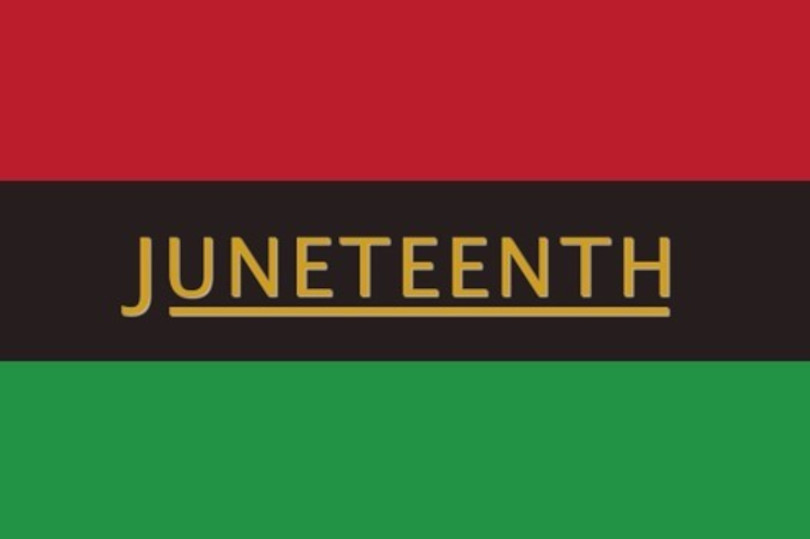Plus, 3 Great Present-Day Ways We Can Celebrate
On Monday, June 19th, a celebration and federal holiday will take place in the United States. It is a holiday that observes the official emancipation of enslaved African Americans. Juneteenth marks a moment in history in which the army announced, after a long-awaited period, that approximately 250,000 enslaved African Americans in the state of Texas were free. On this day, new access to freedom and education were beginning to be in arm’s reach. This opened up newly found potential for generations to come. Looking back and looking deeper helps us remember and realize all that we’ve come from, where we are, and where we more than deserve to be.
Let’s Explore.
Brief History
The name Juneteenth comes from combining June and nineteenth, which marks the anniversary of General Order No. 3, issued by Major General Gordon Granger on June 19th, 1865. This General Order officially affirmed freedom for slaves in Texas. It is also important to remember that at midnight on January 1, 1863, about two years earlier, the Emancipation Proclamation declared that enslaved people in the Confederate States were declared legally free. Specifically, the Thirteenth Amendment confirmed the end of slavery throughout the United States. The thirteenth Amendment confirmed that Neither slavery nor involuntary servitude, except as a punishment for crime whereof the party shall have been duly convicted, shall exist within the United States or any place subject to their jurisdiction.
Although the Thirteenth Amendment confirmed this, this did not mean that everyone in Confederate territory was automatically free. This is where Juneteenth comes into play. In Galveston, Texas, on June 19th, 1865, federal troops arrived and proceeded to take control of the state in order to guarantee that all of the enslaved knew that they were now free since many slave owners in Confederate states did not honor the Emancipation Proclamation.
The next year, on the same day, freedmen began what would become the first of an annual ceremony celebrating the history of June 19th, 1865, and called it “Jubilee Day.” Each year, many former slaves and their families would travel annually to Galveston to honor the holiday. The celebrations featured “music, barbecues, prayer services, and other activities.” On the political side, the celebrations were also used to share knowledge about voting rights with newly freed Blacks. Over time, as Black people began to migrate from Texas the Juneteenth traditions began to spread.
3 Present-Day Ways to Celebrate
It is also important to remember that Juneteenth wasn’t considered a federal holiday until June of 2021, after centuries of the holiday being celebrated. Because of this, finding honorable and creative ways to celebrate this time in history is vital and can continue to connect us to our ancestors for decades to come. Put simply, Juneteenth is a day to commemorate the hardships endured by ancestors and is about empowerment and hopefulness.
1. Visit The Smithsonian’s National Museum of African American History & Culture
One great way to celebrate Juneteenth is by educating ourselves about history. One way you can do this is of course by reading this article. Also, you should visit and show your support of your local Black history museums. Locally, we have access to The Smithsonian’s National Museum of African American History & Culture in Washington, DC. During the experience, you are taken on a journey through your roots. Visitors explore the history of African Americans’ global influence and review Black stories of spirituality, resilience, triumph, and much more. And remember, you have to reserve passes to visit, so don’t forget to do so before arriving.
2. Watch and Show Your Support for Books, Films, and Music by Black Artists
Dig deep into the past, and watch, read, and listen to the greats. Listen as Ella Fitzgerald serenades you with her impeccable pitch. Analyze the words of Toni Morrison’s Sula. Watch Black films like Moonlight, which explore and help define new meanings and aspects of Black culture.
3. And Last but Not Least, and Certainly Most Importantly: Support Black Owned Businesses!
Businesses like Sankofa, a Black-owned bookstore and cafe located in Washington, DC, and Maat Sunz, a Black-owned health and wellness company, also located in Washington, DC, may be good places to start. Sankofa will actually be hosting an event on June 18th, from 1–6 pm called Baba’s, Babies and Books: A Sankofa Babacue, A Juneteenth Cookout Celebrating Our Faavas. It is an event that gives the Black community room to celebrate their full expression. It also will feature a $1000 book giveaway, live entertainment, food for thought, and a bite to eat.
Aside from the event, Sankofa is a promoter of great African American literature from the present and past. They also host many Black events, providing a space for artists of all kinds. Maat Sunz focuses on “providing the global community with alkaline and herbal teas that are inspired by Dr. Sebi and our ancient ancestry.” Further, the company teaches its consumers about the benefits of healthy eating and partners with local talent to engage at some of the hottest Black artist’s events. And don’t forget to reach out and find out more by connecting with them on Instagram @sankofadc and @maatsunz.
Until next time, do what you can to support the Black community and celebrate!
And remember, every day can be a time to celebrate being Black!
Happy Juneteenth!


